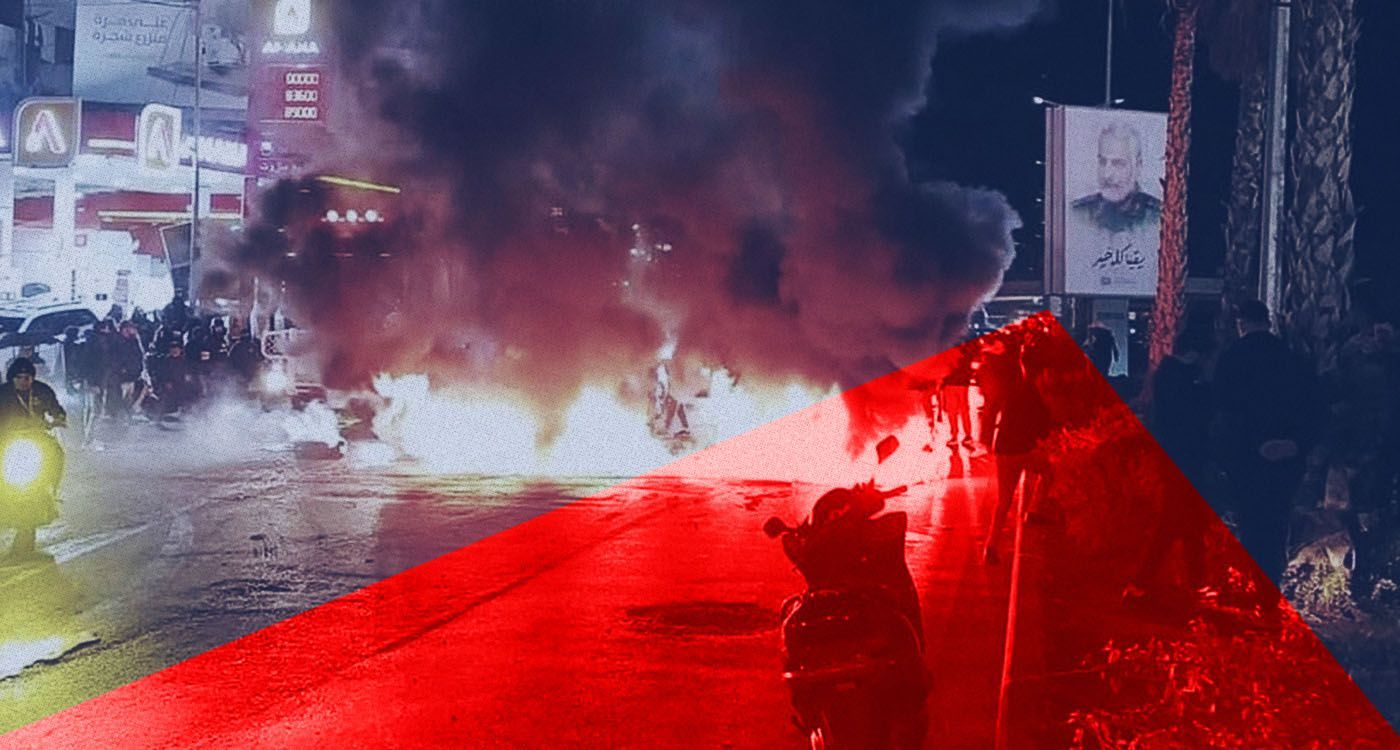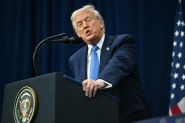
In a country that truly upholds the rule of law, Hezbollah’s secretary-general, Sheikh Naim Qassem, would have faced prosecution for undermining national security, inciting sedition, and threatening civil peace. As the figurehead of the Iranian Revolutionary Guards’ outpost in Lebanon, he has reached new heights of recklessness, veering into dangerous delusion.
“No life will remain in Lebanon if the government confronts Hezbollah,” Qassem warned, insisting that the nation itself should be “mourned” (!) if authorities press ahead with their decision to seize the group’s weapons. He went further, declaring that Hezbollah is ready to fight the national army in a battle reminiscent of Karbala to protect its arsenal, blaming the government, which he accused of “executing Israeli and American orders,” for any ensuing conflict (!)
Echoing this rhetoric, MP Mohammed Raad proclaimed: “Better death than handing over our weapons,” adding that the government’s August 5 and 7 decisions have placed Hezbollah squarely “on the road to Karbala.”
The brutal imagery of death, or more precisely of suicide, and the reference to Karbala, the fateful and unwinnable battle fought by Imam Hussein in 680 against the Umayyad Caliph Yazid, can be read, in the strictly Lebanese context, as a reaction of sheer panic in the face of imminent danger. For Hezbollah, such rhetoric is less a theological evocation than an attempt to erect a desperate barrier against this threat, by magnifying, almost to the point of frenzy, its determination to hold on to its weapons at any cost, regardless of the devastating consequences or heavy sacrifices that such a course of action might entail.
Some may even find echoes of another episode in history: the siege of Masada, near Jerusalem around 70 AD, which ended in the collective suicide of a group of diehards who chose death over surrender to Roman forces.
Yet, bound as it is to the doctrine of Wilayat al-Faqih, Hezbollah’s leadership could not have erupted with such vehemence on the basis of domestic factors alone. These reactions are clearly tied to the broader, volatile regional context and were, in all probability, triggered by the hardliners of the Iranian regime. The present excesses may also reflect, among other things, the deep internal rifts in Tehran’s corridors of power, pitting the Revolutionary Guards against the so-called “moderate” camp led by President Massoud Pezeshkian.
These divisions are by no means new, but since the twelve-day Israeli-Iranian war, and even more so following the US airstrikes on Iranian nuclear facilities, they have been increasingly laid bare. Just last week, President Pezeshkian came out clearly in favor of resuming dialogue with the United States, implicitly criticizing the Revolutionary Guards’ obstructionist stance. This earned him a fierce campaign from the regime’s radical wing. Only two weeks earlier, he had already faced harsh attacks for granting an interview to an American outlet, an interview the Guards’ circles denounced as overly accommodating.
Hezbollah’s radical turn, mirrored by pro-Iranian factions in Iraq, thus appears aligned with a new escalation unfolding in Tehran. The question is whether this hardening is also part of a calculated Iranian strategy: pushing its proxies in the satellite states to stiffen their positions, offered as a concession to the regime’s hardliners in exchange for reviving the dialogue with Washington promoted by President Pezeshkian. The answer is expected before long.
For the time being, Hezbollah must contend with three realities it can no longer conceal: a) Sheikh Naim Qassem’s latest speech has crystallized a broad cross-communal movement now firmly committed to the disarmament of all militias, without exception, in line with government decisions; b) an overwhelming majority of Lebanese back President Joseph Aoun, who has consistently stressed that the country has borne the weight of other people’s wars for far too long, and that Lebanon’s solidarity with the Palestinian cause should not deprive its citizens of the right to a normal life, to long-deserved well-being, and to long-awaited prosperity; c) as Justice Minister Adel Nassar pointed out, when Sheikh Qassem threatens that there will be “no more life in Lebanon” if the government challenges Hezbollah’s weapons, he all but nullifies the very rationale that those weapons are meant to “defend Lebanon.”
Entrenched in its organic, ideological, theocratic, logistical, strategic, military, and financial ties to the clerical regime, Hezbollah is today, under the guidance of the Revolutionary Guards, making the fatal error of assuming it can arrogantly and contemptuously hold the Lebanese people hostage indefinitely. By imposing the dictates of a backward regime that openly disregards the aspirations and distinct identities of other communities, it shows a profound misunderstanding of Lebanon’s core realities, its unique social fabric, and, most importantly, the country’s long and complex history, both ancient and modern.




Comments